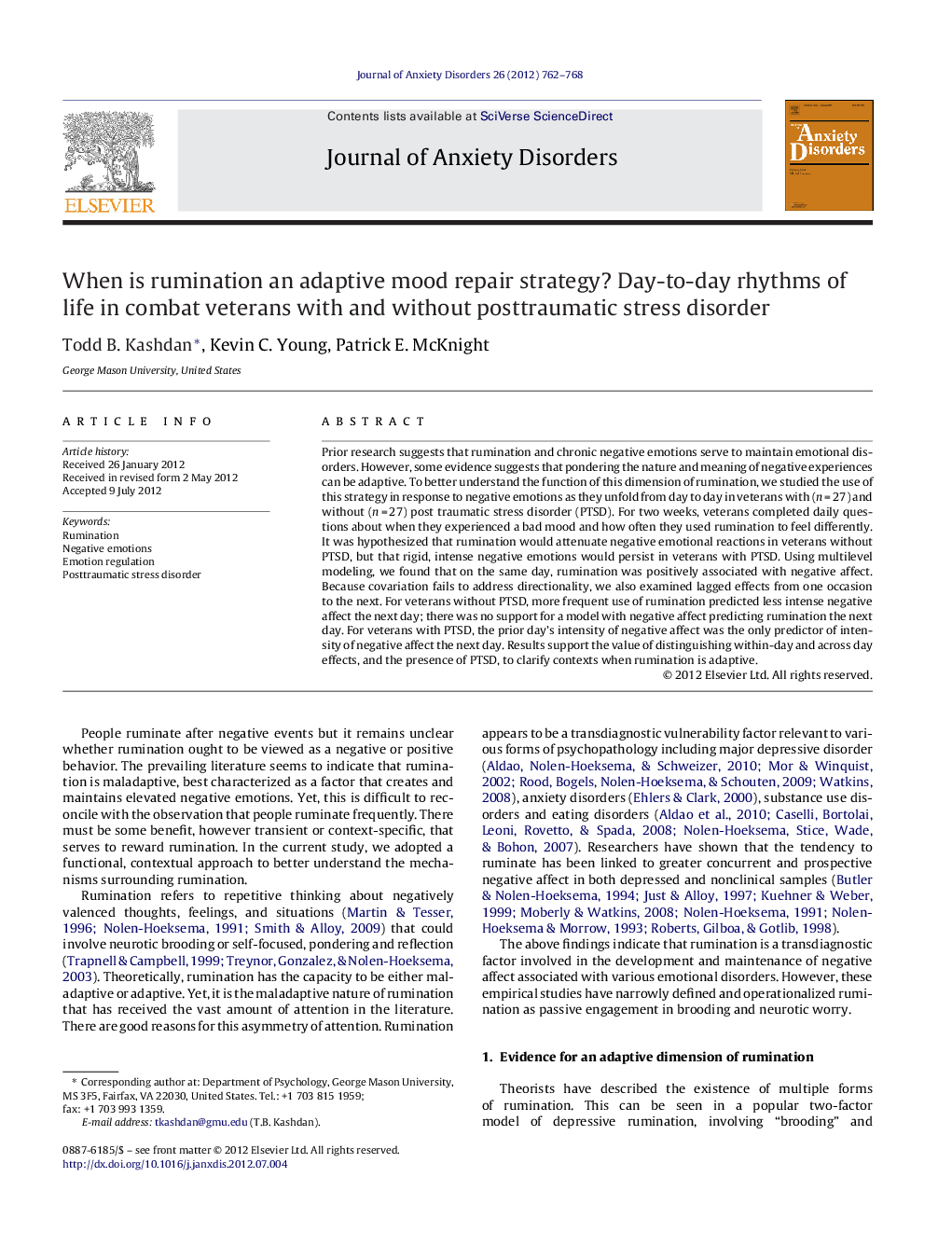| کد مقاله | کد نشریه | سال انتشار | مقاله انگلیسی | نسخه تمام متن |
|---|---|---|---|---|
| 909465 | 917285 | 2012 | 7 صفحه PDF | دانلود رایگان |

Prior research suggests that rumination and chronic negative emotions serve to maintain emotional disorders. However, some evidence suggests that pondering the nature and meaning of negative experiences can be adaptive. To better understand the function of this dimension of rumination, we studied the use of this strategy in response to negative emotions as they unfold from day to day in veterans with (n = 27) and without (n = 27) post traumatic stress disorder (PTSD). For two weeks, veterans completed daily questions about when they experienced a bad mood and how often they used rumination to feel differently. It was hypothesized that rumination would attenuate negative emotional reactions in veterans without PTSD, but that rigid, intense negative emotions would persist in veterans with PTSD. Using multilevel modeling, we found that on the same day, rumination was positively associated with negative affect. Because covariation fails to address directionality, we also examined lagged effects from one occasion to the next. For veterans without PTSD, more frequent use of rumination predicted less intense negative affect the next day; there was no support for a model with negative affect predicting rumination the next day. For veterans with PTSD, the prior day's intensity of negative affect was the only predictor of intensity of negative affect the next day. Results support the value of distinguishing within-day and across day effects, and the presence of PTSD, to clarify contexts when rumination is adaptive.
► This is only the second study to examine the relationship between rumination and negative affect in daily life.
► Naturally occurring ruminative thinking in the aftermath of a “bad mood” can be adaptive, depending on the context.
► In combat veterans with PTSD, negative mood on a given day persisted into the next day.
► In combat veterans without PTSD, rumination on one occasion predicted negative mood on a subsequent occasion.
Journal: Journal of Anxiety Disorders - Volume 26, Issue 7, October 2012, Pages 762–768